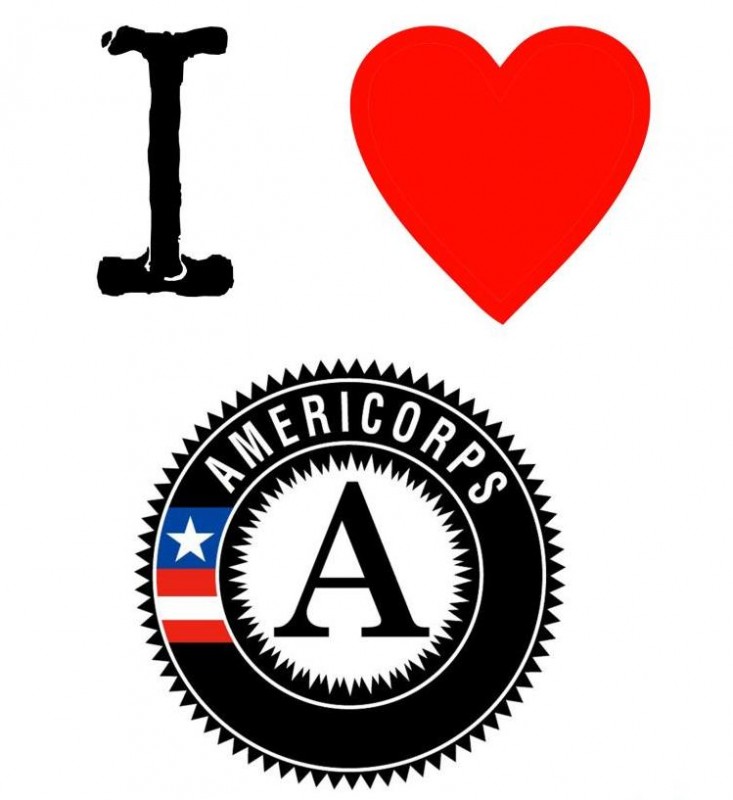 In response to my Wall Street Journal piece yesterday, some folks have asked if I was ever in AmeriCorps.
In response to my Wall Street Journal piece yesterday, some folks have asked if I was ever in AmeriCorps.
No, but I did have a cameo in one of their Mississippi programs. When I was investigating AmeriCorps in 1999, I traveled to the Mississippi Delta Here’s the excerpt from Public Policy Hooligan:
****
In lieu of substantive achievements, AmeriCorps officials promised the moon. In 1998, AmeriCorps chief Harris Wofford bragged that AmeriCorps had set a goal for itself of “effective education and literacy for every child.” This made as much sense as promising that AmeriCorps members would pave every pothole in the nation. In 1999, Clinton boasted that AmeriCorps members “have… taught millions of children to read.” One AmeriCorps official told me he doubted AmeriCorps had taught even a dozen children to read.
I scooted over to the West Virginia Panhandle to check out one of AmeriCorps’s premier literacy programs. The Energy Express program enrolled 600 college students each summer to teach reading to tens of thousands of kids from low-income families. The run-down school I visited in Ranson, West Virginia certainly provided a pleasant environment for youngsters. When children were not watching puppet shows or engaging in “non-competitive recreation,” they sat in cardboard boxes or indoor tents and played with books. I asked several AmeriCorps members how much training they received to teach reading. Each one I asked looked at me as if I was crazy. One earnest AmeriCorps recruit named Brian explained: “We’re not teaching them to read – we are just exposing them and getting them to like it. You just want them to think they’re doing a good job” when reading. (AmeriCorps members were careful not to correct children’s grammar.) Talking on-site with the front-line members for five minutes was sufficient to obliterate AmeriCorps’ bluster on Energy Express. I wondered if wildly exaggerating accomplishments was the key to rising in the bureaucracy….
After delving into AmeriCorps grant applications and websites, Mississippi seemed to have the most farcical programs – as well as some of the nation’s best BBQ. Mississippi’s AmeriCorps website mentioned an orientation session in the Delta planned for the following week. Since AmeriCorps headquarters was already trying to scuttle my article, I contacted Mississippi AmeriCorps directly and asked if I could drop by.
I flew into Jackson and, on a sultry Wednesday morning, took old Highway 61 – known as the “Blues Highway” – to Greenville. The crop duster planes languidly looping over oceans of white cotton fields were infinitely charming. (I never had any sympathy for boll weevils.)
After talking my way out of a speeding ticket from a Mississippi state trooper, I arrived at the campus of Alcorn State University, where initiation festivities for a hundred new “assistant teachers” were in progress. I caught the final speakers of the morning – two poohbahs from the state capital. Their pompous wording and condescending delivery revealed that their self-concepts were as bloated as their job titles. No wonder much of the audience looked bleary-eyed. While the AmeriCorps reading crew I saw in West Virginia was all white, the Mississippi assistant teachers were all black. Most of the recruits were in their late teens or early twenties.
I targeted this literacy program because its AmeriCorps grant application was chock full of spelling and grammar errors. Also, the assistant teachers were only required to read at an eighth-grade Mississippi level. Yet, AmeriCorps effectively paid them the equivalent of $50 an hour for tutoring. (AmeriCorps routinely sent dropouts back into schools to serve as mentors.)
I was standing in the back of the hall, trying to look inconspicuous and succeeding as well as Br’er Fox loitering outside a rabbit hole. Up strolled Judy, the executive director for Mississippi AmeriCorps, who I’d spoken with by phone the prior week. She was 40ish and a bit scrawny but thrice as perky as your average civil servant. And she seemed sincerely devoted to making her program a success.
After the usual pleasantries, she chirped: “Would you mind giving a speech to the trainees on how to deal with the media?”
“Uh… I’m not much of a speaker.”
“But they’d be thrilled to get advice from a reporter from our nation’s capital.”
“Uh…”
“Just a ten-minute talk – that’s all we’re asking.”
Hell’s bells, there was no way to shirk her request.
I explained that I could not talk off the cuff – but if Judy would toss me some questions, I’d stretch out my replies.
I knew not to begin by paraphrasing my favorite Shakespeare speech – announcing that I’d come to bury AmeriCorps, not to praise it. I also reckoned it would be indelicate to invite attendees to “drop a dime” on AmeriCorps.
When Judy asked how members should deal with the press, I was tempted to say: “Just look at what AmeriCorps headquarters does – and do the opposite.” Actually, the recruits had little to worry about since the vast majority of media coverage was straight stenography. Most reporters printed whatever an AmeriCorps official told them.
I managed to get a few laughs out of the audience. I silently hoped that AmeriCorps would not blight them for life.

Comments are closed.